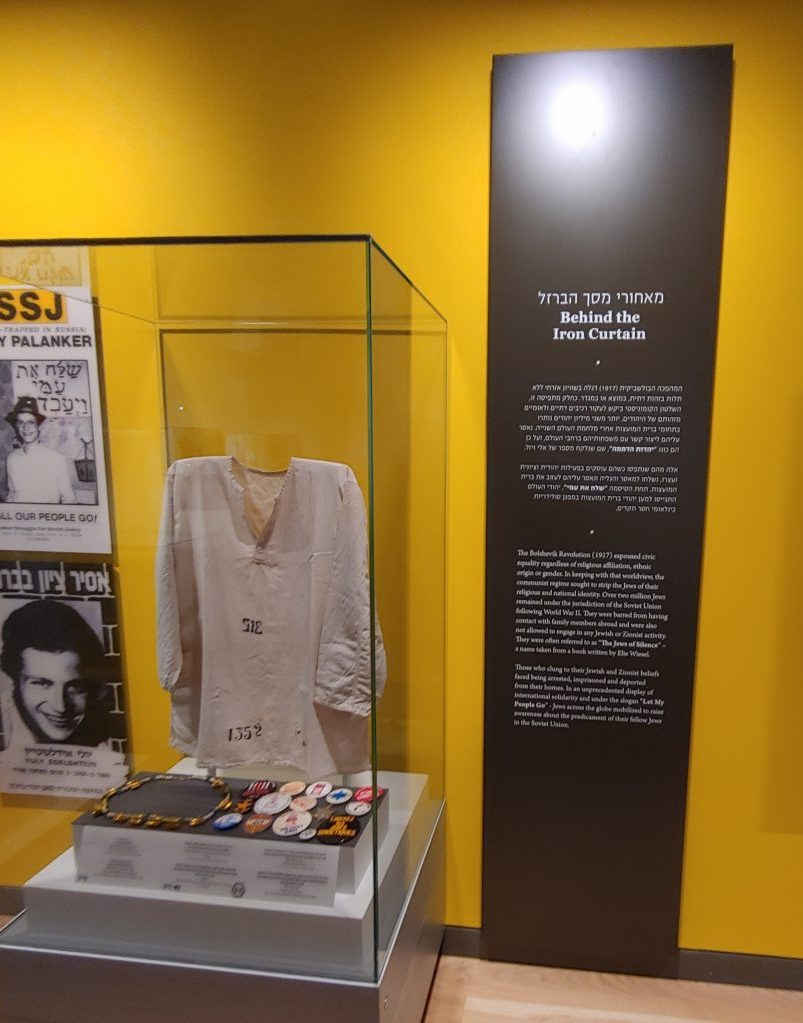Text Panel
The Bolshevik Revolution espoused civil equality that was not contingent on religious identity, origin or gender. Reflecting that worldview, the communist government sought to eradicate the religious and nationalist components of the Jews’ individual and collective identity. Various restrictions were imposed on the activities of their institutions, which in turn led to the breakdown of the community’s social and spiritual leadership. Many Jews continued to observe Jewish religious traditions in secret. The hundreds of thousands of Jews who remained under the jurisdiction of the Soviet Union following World War II were not allowed to be in touch with their relatives around the world and for that reason were called the “Jews of Silence.”

